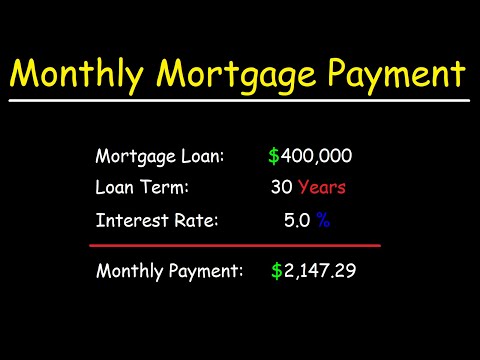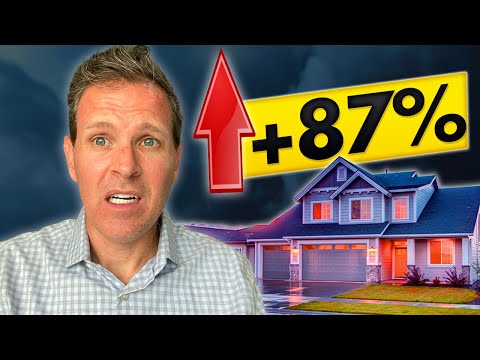Understanding the Average Mortgage Payment in California
Ah, California – the Golden State, known for its sunshine, sprawling beaches, and, let’s face it, eye-wateringly high property prices. What Is the Average Mortgage Payment in California? With a real estate market that often feels like it’s on a perpetual uptrend, what is the average mortgage payment in California? It’s a question as hot as a midsummer’s day in Death Valley, and we’re here to unwrap the mystery.
The “average mortgage payment” isn’t just a number plucked from the clear Californian sky. It’s made up of the principal, the interest, property taxes, and homeowners’ insurance. Historical patterns show us that this figure dances to the rhythm of the economy, shifting with job markets, legislation, and the undeniable allure of California living.
Historically, the California housing music has played to the tune of higher-than-average payments, thanks to urban hotspots like San Francisco and Los Angeles. But the true tune is more complex, interwoven with the economic tapestry ranging from the tech-driven North to the entertainment mecca in the South.

What Is the Average Mortgage Payment in California?
Ever heard that catchy phrase, “Location, location, location!”? But don’t worry you don’t need to buy a tiny home at Home Depot. Well, that’s not the whole tune. The payment for your slice of paradise depends on numerous factors:
- The price of the pad: Higher home prices mean higher mortgage payments, my friends. And in California? They tend to be higher than a skyscraper’s top floor.
- Interest rates: Think of these like the sun’s intensity on a summer day – the higher they are, the more they’ll make you sweat… over your mortgage payment in California.
- Property taxes and home insurance: These are the shades and sunscreen of your housing costs – you can’t ignore them if you don’t want to get burned!
- Loan term: The duration of your loan is like the difference between a sprint and a marathon – short terms have higher monthly payments, while long ones spread out the cost, but increase the total interest paid over time.

| Year | Average Monthly Mortgage Payment in California | Percentage of Homebuyers with Payments ≥ $2,000 | Percentage of Homebuyers with Payments ≥ $3,000 | Notes |
|---|---|---|---|---|
| 2021 | $2,015.08 | 18% | 5% | Based on principal and interest only. |
| 2022 | $3,605.12 | N/A | N/A | Based on principal and interest only. Large increase likely due to rising home prices and interest rates. |
| 2023 | Adjusting based on market | 51% | Nearly 25% | Expect variations due to interest rates, loan amounts, and housing market conditions. |
| Example Calculation (2023) | For a $300,000 mortgage at 6% APR: | |||
| 15-year loan | $2,531.57 | Does not include escrow; significantly higher than 2021 average. | ||
| 30-year loan | $1,798.65 | Does not include escrow; approaching the 2021 average. |
The State of the Market: Average Mortgage Payment in California 2023
In 2023, Californians faced a roller coaster of a market. The average mortgage payment California homeowners contended with was a substantial $3,605.12 monthly. That’s a big leap from 2021’s average of $2,015.08! We’re talking about hefty payments, illustrating just how much the state’s housing market has heated up.
This surge isn’t just a blip but part of an upward trend we’ve seen across California. Economic and policy changes have played their part, making it pivotal for prospective homeowners to stay informed and prepared.

Recent Changes Affecting the Average Mortgage Payment in California 2024
Looking ahead, what is the average mortgage payment in California 2024 expecting to be? Well, real estate never sleeps, and it’s a wild beast in California. Market fluctuations could see average payments swaying like palm trees in an ocean breeze.
Interest rates are the surfers of the housing sea – catch a good wave, and you’re golden. But at the start of 2024, they’ve been riding high, meaning your dream home might come with higher monthly dues. Don’t forget about state-specific policies, which can be like unexpected riptides, affecting the ease of your financial swim.

Regional Variances in the Average Mortgage Payment in California
It’s important to remember that California is a tapestry of diverse economies and lifestyles. The mortgage payment in bustling Silicon Valley contrasts starkly with the more serene settings of the state’s central valleys. And there’s a reason why!
Local job markets are like the engines of home prices – the more robust they are, the more homes tend to cost. It’s a simple equation of supply and demand.

Forecasting the Future: Projecting the Average Mortgage Payment in California
Experts, donning their finest predicting hats, will tell you that forecasting the California housing market is as tricky as predicting the next Hollywood blockbuster. Yet, with the tech industry booming and population shifts, we can anticipate future payments to be as variable as the state’s landscapes.
The tech industry, with its gravity-defying salaries and space-age campuses, is critical in molding California’s housing future. If its meteoric growth continues, it may send average mortgage payments in California 2024 skyrocketing even further.

How the California Mortgage Payment Complements National Trends
When we zoom out to look at the national scene, California’s average mortgage payments might seem like they’re in a league of their own. But in reality, the Golden State is performing in concert with broader national economic swings.
Unpacking how national trends like inflation and federal policy impact mortgage payments can be as complex as a vintage Napa Valley wine, but it’s essential to understand that California doesn’t dance alone – it tangoes with the nation.
Strategies to Manage the Average Mortgage Payment in California
If the average mortgage payment is making you sweat, don’t throw in the beach towel just yet. Consider these strategies:
Leveraging the Average Mortgage Payment in California for Investment
For the savvy investors among you, average mortgage payments in California are like the tide charts – crucial for knowing when to make your move. Real estate in the state can be as profitable as a blockbuster hit, but remember – it comes with its own set of risks.
Distinctive Insights into the Average Mortgage Payment in California
To really get the inside scoop, let’s turn to those in the trenches – the real estate pros and homeowners who know these numbers like the back of their sunscreen-slathered hands.
Envisioning Your California Dream: Beyond the Average Mortgage Payment
At the end of the day, what is the average mortgage payment in California but a number in a grander equation? Owning a slice of California isn’t just about the payments; it’s about the life that comes with it.
The mortgage payment tale of California is as multi-faceted as the state itself. From the rugged coasts to the glitzy cityscapes, knowing what is the average mortgage payment in California is just the beginning of a much deeper story. So go ahead, make that informed leap into the California market, and may your mortgage payments be as rewarding as the Golden State’s endless summer.
What is the average mortgage payment per month in California?
Well, hang onto your hat—California’s infamous for its sky-high real estate! The average mortgage payment in the Golden State can vary widely based on location and home size, but it’s generally a pretty penny. On average, homeowners might be shelling out around $2,282 per month. But remember, that’s just an average, and homes in sought-after areas like San Francisco can see numbers that’ll make your wallet wince!
How much does a $300 000 mortgage cost per month?
If you’re eyeballing a $300,000 mortgage, you’re probably wondering what the monthly damage would be. It’s a bit like asking how long is a piece of string—depends on the terms. But let’s talk turkey: a $300,000 mortgage could cost you around $1,500 a month, give or take, depending on your interest rate and loan length. Remember, this doesn’t include the trimmings like insurance and taxes.
Is $2,000 a month mortgage high?
Coughing up $2,000 a month for a mortgage might sound steep, but it’s all relative, right? For some, it’s a drop in the ocean; for others, it’s a king’s ransom. In pricier housing markets, $2,000 might barely scratch the surface, but in more modest areas, you could be living large. So, whether it’s high or just hitting the mark, that depends on where you’re planting your roots!
What’s the payment on a $400 000 house?
Dreaming of a $400,000 house? Get ready for payments that could make your wallet a bit lighter. If you’ve got a trusty calculator handy, you might find the monthly payment ballpark is around $2,000 to $2,500. That’s assuming a standard down payment and a fairy-tale interest rate. But don’t forget the extras: taxes, insurance, and the neighbor who always borrows your lawn mower.
How much house can I afford if I make $70,000 a year?
Pulling in $70,000 a year? Nice! Now, how much house that can get you is a whole other kettle of fish. Lenders usually like your debt-to-income ratio to stay pretty as a picture, so you might be looking at a house around $200,000 to $300,000. Of course, the devil’s in the details—things like debt, down payment, and the interest rate can shift those numbers.
How much income do you need to buy a $500000 house?
Looking to buy a $500,000 house? You’ll need a healthy income to make the cut. Mortgage mavens often say your housing costs should be a third of your gross income. So, for a half-mil house, you might need an income that’s flirting with the $150,000 mark. But hey, that’s just a ballpark, and your mileage may vary.
What credit score is needed to buy a $300 K house?
Credit scores—those finicky little numbers. To buy a $300k house, you’d want a credit score that’s the bee’s knees, ideally 620 or higher for conventional loans. The higher your score, the sweeter the deal—think lower interest rates and a hearty handshake from your lender.
How much should you make to afford a 300 000 House?
If you’re setting your sights on a $300,000 house, you’ve gotta ask, “Is my wallet up for this?” Your income should be robust enough to handle the mortgage and still have room for a night out or a rainy day fund. You might need to rake in around $60,000 to $85,000 annually, but it’s a balancing act with other debts and expenses.
How much income do you need to qualify for a $300 000 mortgage?
To lock in a $300,000 mortgage, lenders will be playing financial matchmaker with your income. If they’re giving you the nod, you’re probably making between $60,000 to $80,000 a year. That way, you can comfortably say “I do” to the monthly payments without risking cold feet later.
How much house can I afford if I make $36,000 a year?
Making $36,000 a year and itching to buy a house? Rule of thumb: play it safe with a mortgage that’s not more than three times your annual income. So you might be looking at a home that’s about $100,000 to $120,000. It’s not a mansion, but hey, it’s a start!
What mortgage can I afford on a 50k salary?
On a $50k salary, you’re probably tapping your fingers, wondering about the mortgage that won’t break the bank. Generally, aiming for a home that’s priced two to three times your salary is a good bet. This means you’re potentially looking at houses priced around $100,000 to $150,000. Sure, it’s no castle, but it’s a cozy cottage!
How much should my mortgage be if I make 200k a year?
Earning a cool 200 grand a year? First off, go you! You could potentially afford a mortgage around $600,000 to $800,000. But just because you can doesn’t mean you should—remember to consider your entire financial picture before dialing up that dream home.
Can I afford a 400k house with 70k salary?
Could you bag a $400k house on a $70k salary? It’s a stretch, but not outside the realm of possibility—especially if you’ve got a hearty down payment or minimal other debts. Still, you’d be on a tighter budget than Spanx on Thanksgiving. Sticking closer to $250,000 could keep you from sweating bullets when the bill comes.
How much income do you need to buy a $250000 house?
Hunting for a $250,000 home? With lenders eyeing the “third of your income” rule, you’d ideally need a gross annual income around $60,000 to $75,000. But hey, if you’ve got other debts nipping at your heels, that number might need an upward tweak.
Can I afford a 400k house on 100k salary?
Set your sights on a $400k house with a $100k salary? You’re in good shape! Typically, your housing cost should be one-third of your income—your paycheck fits the bill nicely. Toss in a good credit score and a decent down payment, and you’re golden!
What is a normal mortgage payment per month?
A normal mortgage payment? Nothing’s “normal” in the wide world of real estate, but on the national average, folks are parting with about $1,100 to $1,300 a month. Not too shabby, right? But remember, what’s normal can swing wildly depending on where you plant your garden gnome.
What is a reasonable monthly mortgage payment?
A reasonable monthly mortgage is like a good blind date—comfortable and not keeping you up at night. Ideally, it’s anywhere from 25% to 28% of your monthly gross income. So, no need to eat ramen every night unless you’re really into noodle chic.
What is a typical monthly mortgage payment?
The typical monthly mortgage payment dances around that $1,100 to $1,300 mark nationally. But let’s face it, “typical” varies more than fashion trends—location and loan terms have big roles to play in your monthly spend.
What is a normal monthly mortgage?
Last one, take a deep breath—it’s the normal monthly mortgage question again. Let’s circle back: Nationally, it’s like a $1,100 to $1,300 monthly groove you’ll be getting into. Just play it cool and make sure it’s a fit for your budget, you savvy spender!



